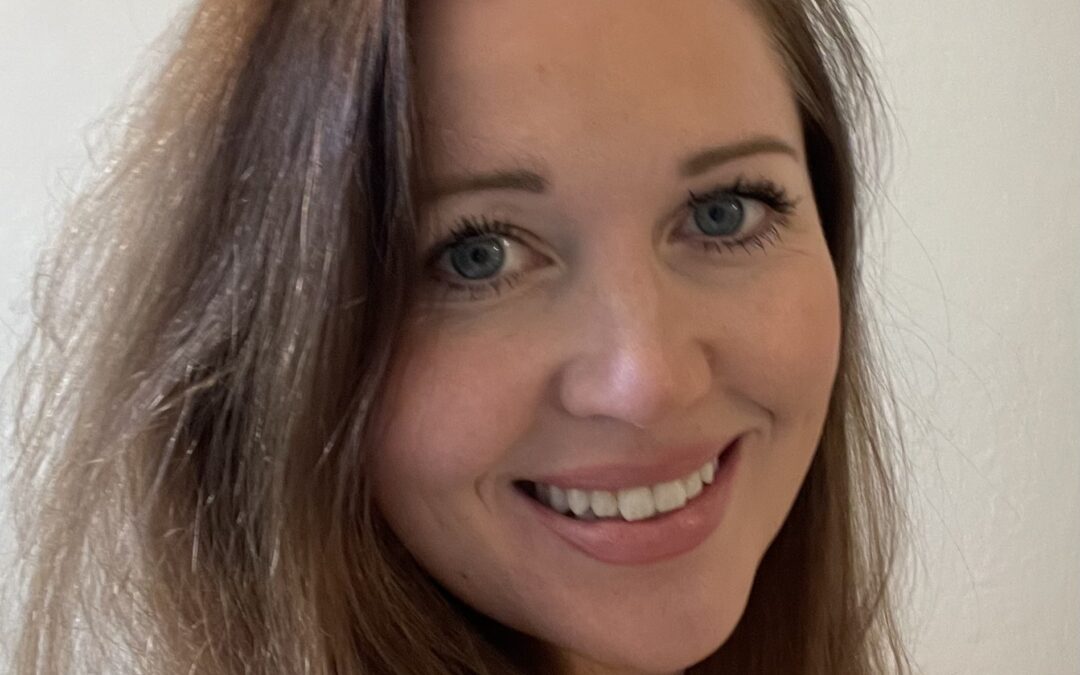
New Associate Director of Philanthropy appointed
New Associate Director of Philanthropy appointed
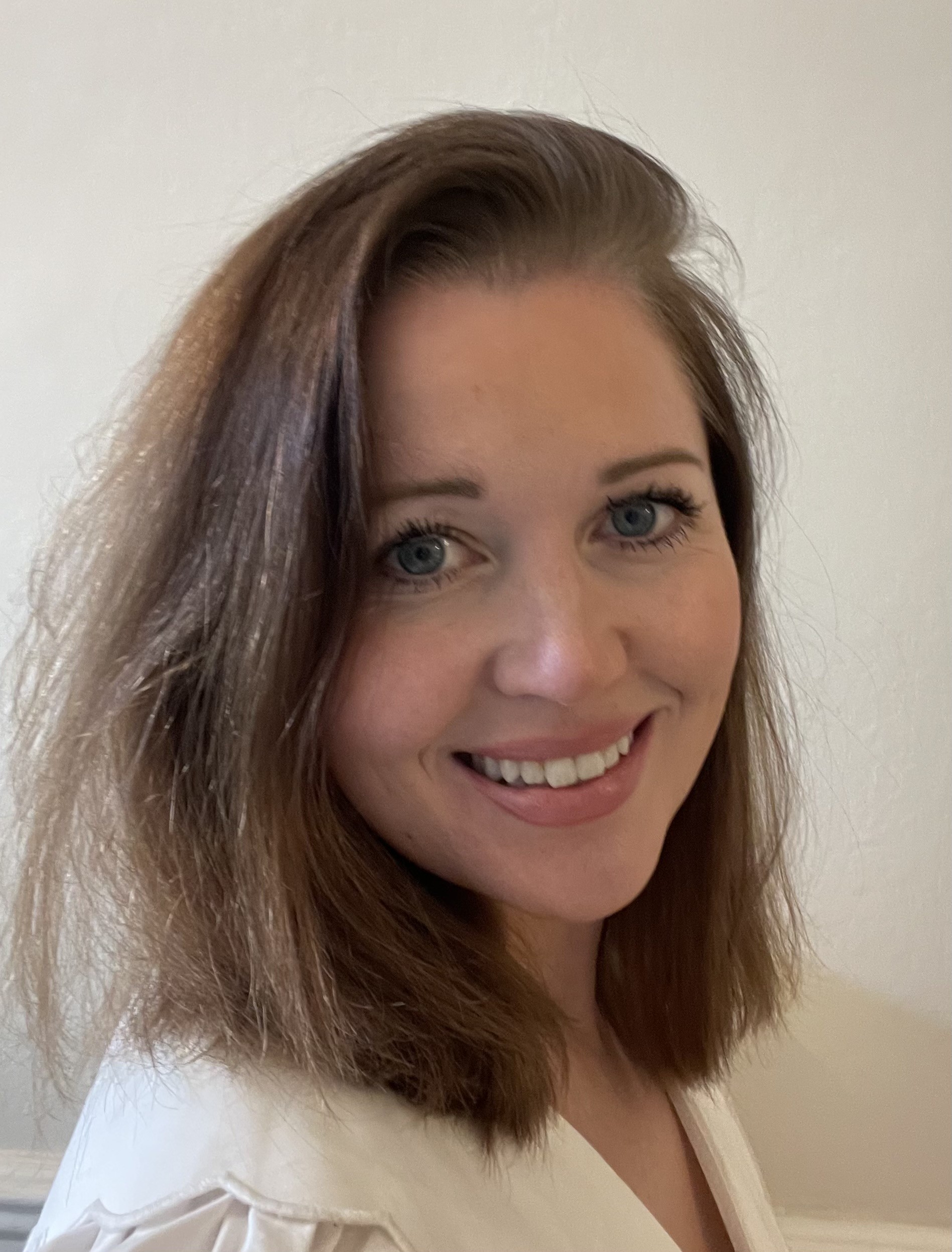
Categories
Follow Us
For the latest updates and news, follow us on our social channels.


For the latest updates and news, follow us on our social channels.


The Government has announced a significant expansion of Mental Health Support Teams (MHSTs). The new investment means six in ten pupils will have access to a mental health support team by March 2026, with the rollout prioritised based on NHS identification of local need and reaching the most vulnerable children first.
This is a vital step in recognising the importance of early intervention in schools. Read the full announcement here.
We are keen to see a long-term plan for investing in MHSTs and the workforce delivering it. Looking to the future, it’ll be important to consider the plight of the ‘missing middle’; those children who are not supported because their need is too great for MHST support and not severe enough for specialist mental health support.
The King’s Maudsley Partnership for Children and Young People will transform our understanding and treatment of young people’s mental health through a unique collaboration between specialist clinicians from the South London and Maudsley NHS Foundation Trust and leading academics at King’s College London. Learn more about us.
For the latest updates and news, follow us on our social channels.
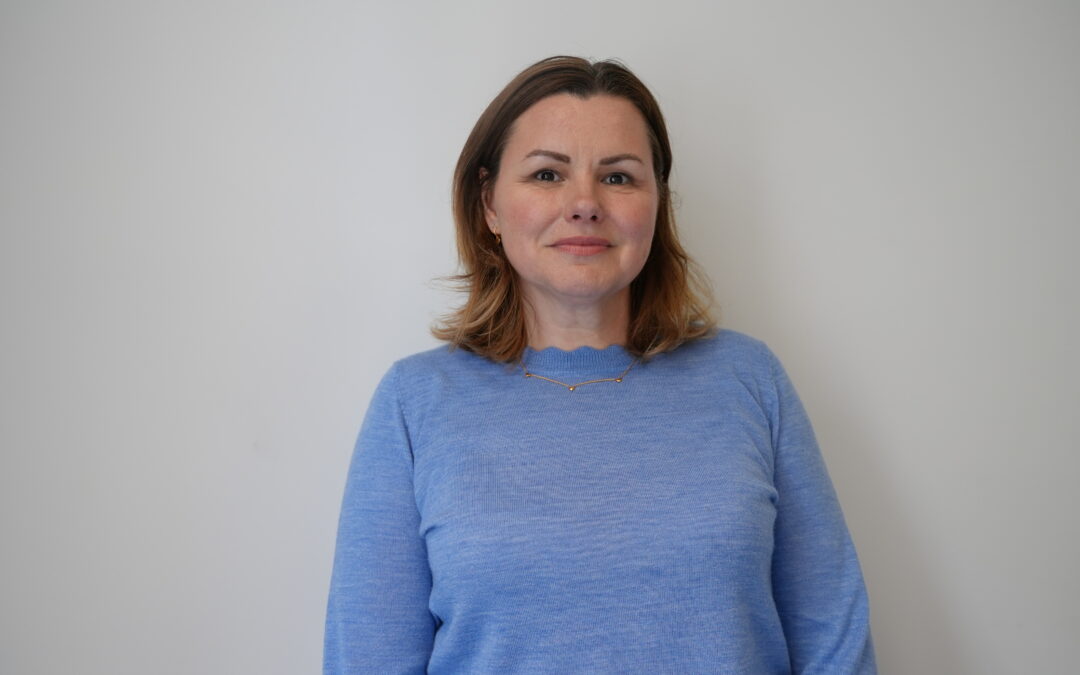
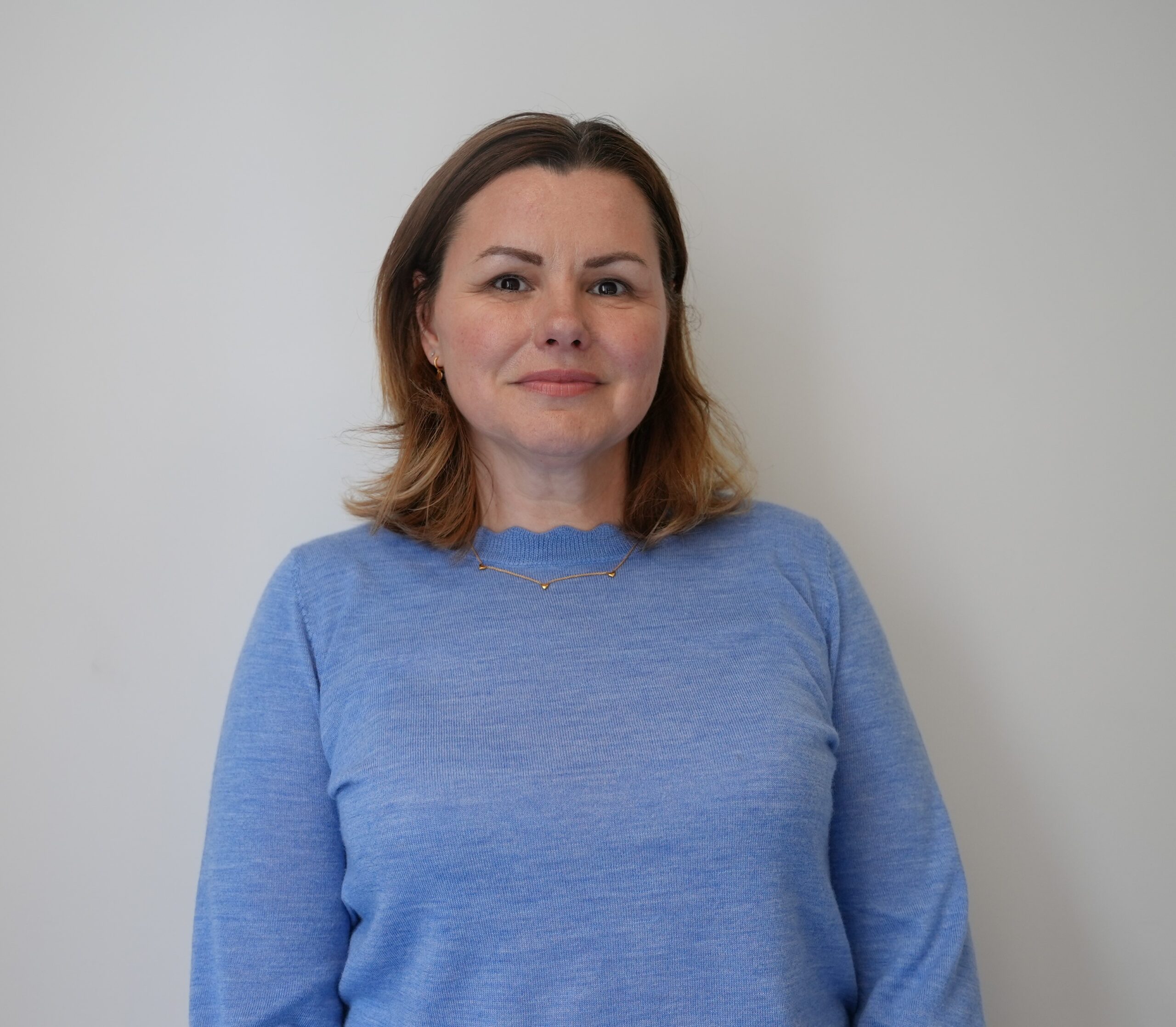
This week we are delighted to welcome Sara Saunders as the new King’s Maudsley Partnership Programme Lead. This is a pivotal role in leading the strategic direction of Partnership. Sara is a mental health nurse by background and most recently worked at Surrey and Borders Partnership NHS Trust, leading the operational delivery of an alliance of NHS and VCSE partners providing the Emotional Well-being and Mental Health services for Children and Young People in Surrey. Prior to that she was at NHS England within the children and young people’s policy team, leading the implementation of Mental Health Support Teams in schools.
“I’m really motivated to realise the unique benefits of the partnership because through my work over the past few years in delivering services and prior to that as a mental health nurse I understand the critical importance of finding new ways in which children and young people can be helped, to respond to the challenges that we’re facing as a society. I strongly believe in partnership as the best way to find innovative solutions.”
“With a strong background in healthcare leadership, partnership working and mental health nursing, Sara brings a wealth of experience in policy and programme management. We’re excited to have Sara join us as we make discoveries and translate them into new ways of helping, shifting the needle on mental health for children and young people everywhere.”
Sara joins following the departure of Sarah Holloway who started as the Chief Executive of the Maudsley Charity last month.
“We’re incredibly grateful to Sarah for her leadership during her 2 years with the Partnership. Sarah helped us build the foundations for a Partnership that will be ambitious in its hopes for innovative clinical research, that has a resolute focus on what’s best for children, young people and families. We’re delighted that Sarah will remain central to the Partnership in her new role.”
For the latest updates and news, follow us on our social channels.
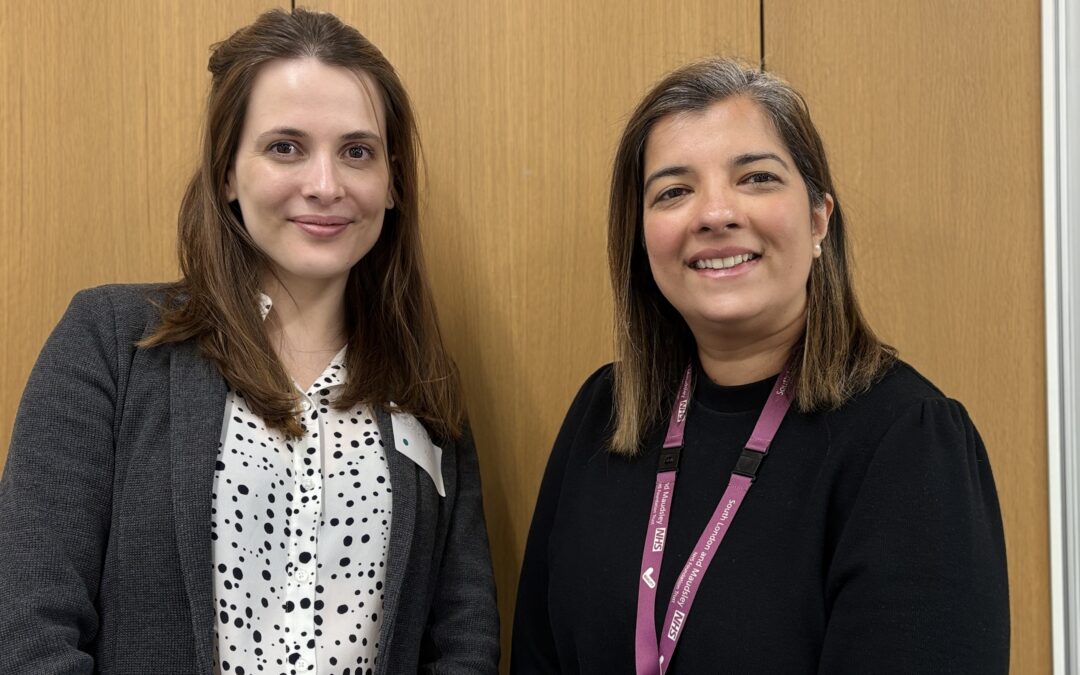
That sentiment, shared during our inaugural meeting, perfectly captured the energy in the room. Last month, the King’s Maudsley Partnership launched a brand-new Affective Disorders Community of Practice—a space for clinicians, researchers, and service partners to come together and improve care for children and young people experiencing mood and affective disorders.
Across CAMHS and academic settings, there’s a wealth of expertise in treating and understanding conditions like depression and anxiety in young people. But these insights can sometimes remain siloed with research not always filtering into day-to-day care, and frontline experiences not always shaping academic studies.
That’s where this Community of Practice (CoP) comes in. It’s designed to break down those barriers, helping us build stronger bridges between research and reality. It’s a space to explore shared challenges, generate ideas, and collaborate on new ways to support young people and families.
The launch event was about more than structure and plans—it was a space for reflection and connection. Here’s what stood out:
Attendees spoke about the value of meeting others across services and disciplines. Whether it was someone new to the field or a seasoned clinician, there was a shared enthusiasm for building relationships that last beyond a single meeting.
There was strong interest in co-developing research that feels real and relevant, projects that respond to clinical questions and make a difference on the ground.
People didn’t just want to benefit from the CoP—they wanted to shape it. There was real curiosity around how to build something sustainable, inclusive, and useful to everyone involved.
We’re just getting started, but already, the group has started to shape what’s to come:
The Affective Disorders Community of Practice is about building something together with curiosity, care, and collaboration at its heart.
Interested in joining us? Contact us at pmcyp@slam.nhs.uk
Let’s shape the future of children and young people’s mental health together.
For the latest updates and news, follow us on our social channels.
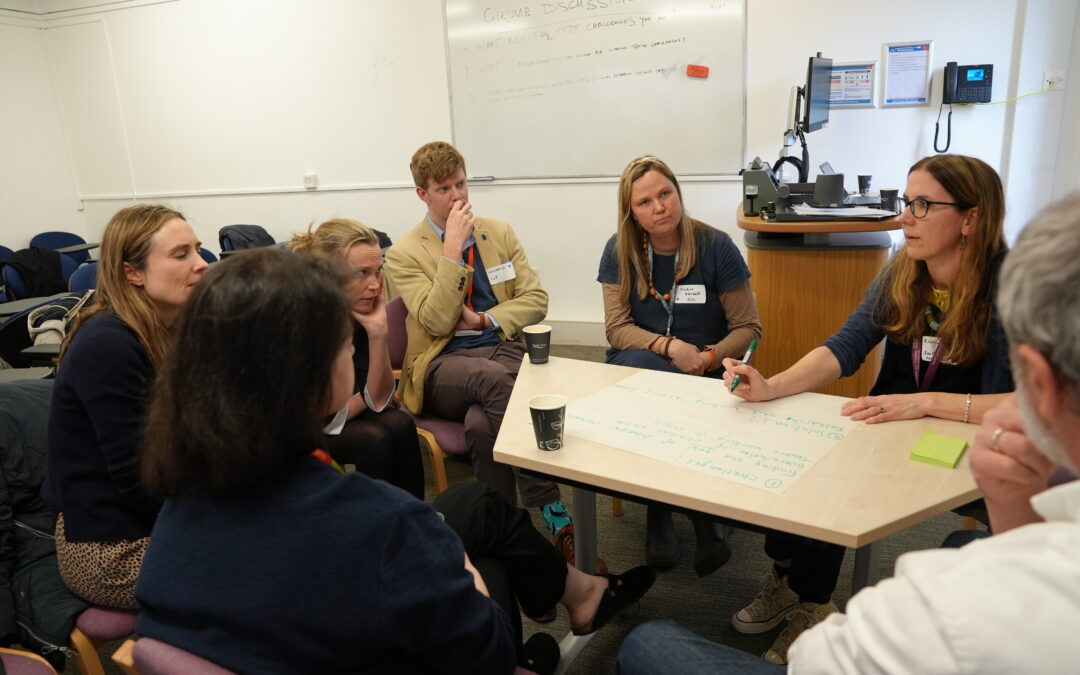
The King’s Maudsley Partnership has launched a new Neurodevelopmental Conditions Community of Practice. It brings together clinicians, academics, and community partners to collaborate to improve care and support for neurodiverse children and young people.
“Recognition of neurodiversity is expanding exponentially, and this has generated significant challenges. These include how to deliver assessment of needs, support healthy identity development and adapt treatments and interventions to be optimally effective; addressing such challenges requires high-quality collaboration from all of those involved.”
A Community of Practice (CoP) is a collaborative space where professionals with shared interests come together to exchange knowledge, explore challenges, and develop innovative solutions. The King’s Maudsley Partnership Neurodevelopmental Conditions CoP is designed to bridge the gap between clinical practice and academic research, ensuring that research is informed by clinical needs and that clinicians have access to the latest advancements in the field.
The CoP serves three key functions:
The CoP is co-chaired by Dr Jesse Campbell a Clinical Psychologist in the South London and Maudsley Trust Child and Adolescent Mental Health Service, and Dr Matthew Hollocks Academic and Clinical Psychologist at Institute of Psychiatry, Psychology & Neuroscience with expertise in co-occurring mental health conditions in children and adolescents with autism spectrum disorder. Reflecting on the first meeting Dr Jesse Campbell said: “As a clinician I was struck both by how the dilemmas of daily clinical practice were sometimes unfamiliar to researchers but also how discussing these dilemmas with researchers and academics quickly opened up new avenues for developing and testing solutions to them. King’s Maudsley Partnership has a remarkable wealth of clinical wisdom and research expertise and I left feeling very optimistic that together these groups can generate real value for the neurodivergent community”
During the first meeting of the CoP participants broke into groups to explore key challenges and opportunities. Several themes emerged:
For the latest updates and news, follow us on our social channels.
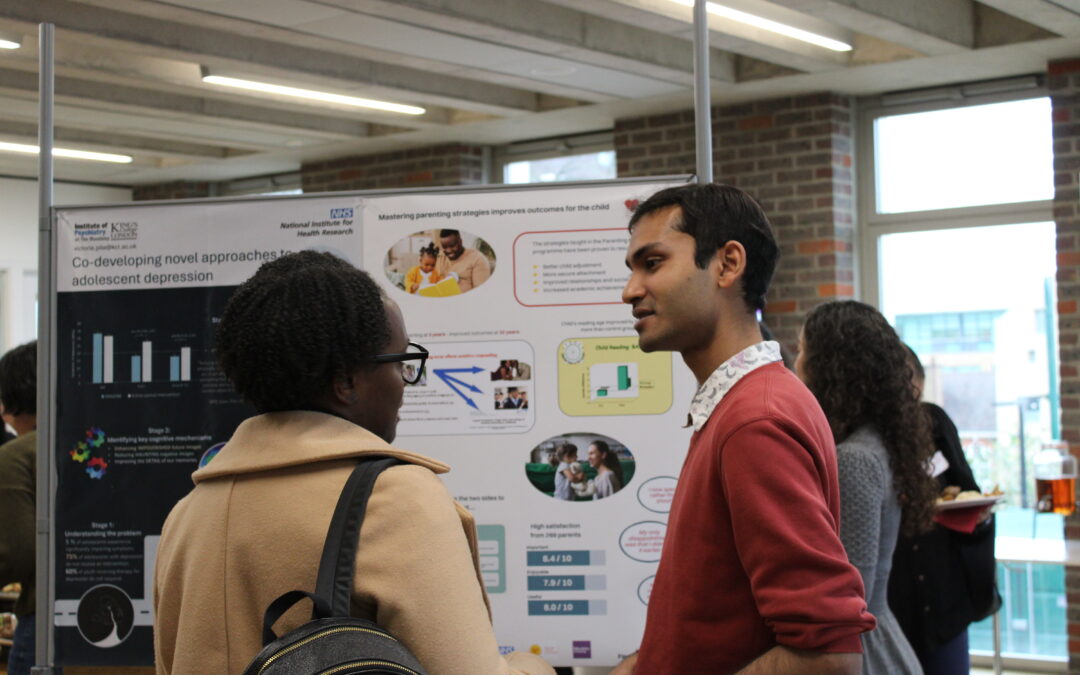
Since the pandemic, there’s been a substantial increase in children and young people’s mental health and wellbeing needs (NHS Digital, 2022). Children and young people (CYP) can struggle to find support due to health inequalities and barriers to accessing clinical care. As a result, schools are increasingly relied upon to support students and their families with mental health difficulties, often without adequate resources, training, or support.
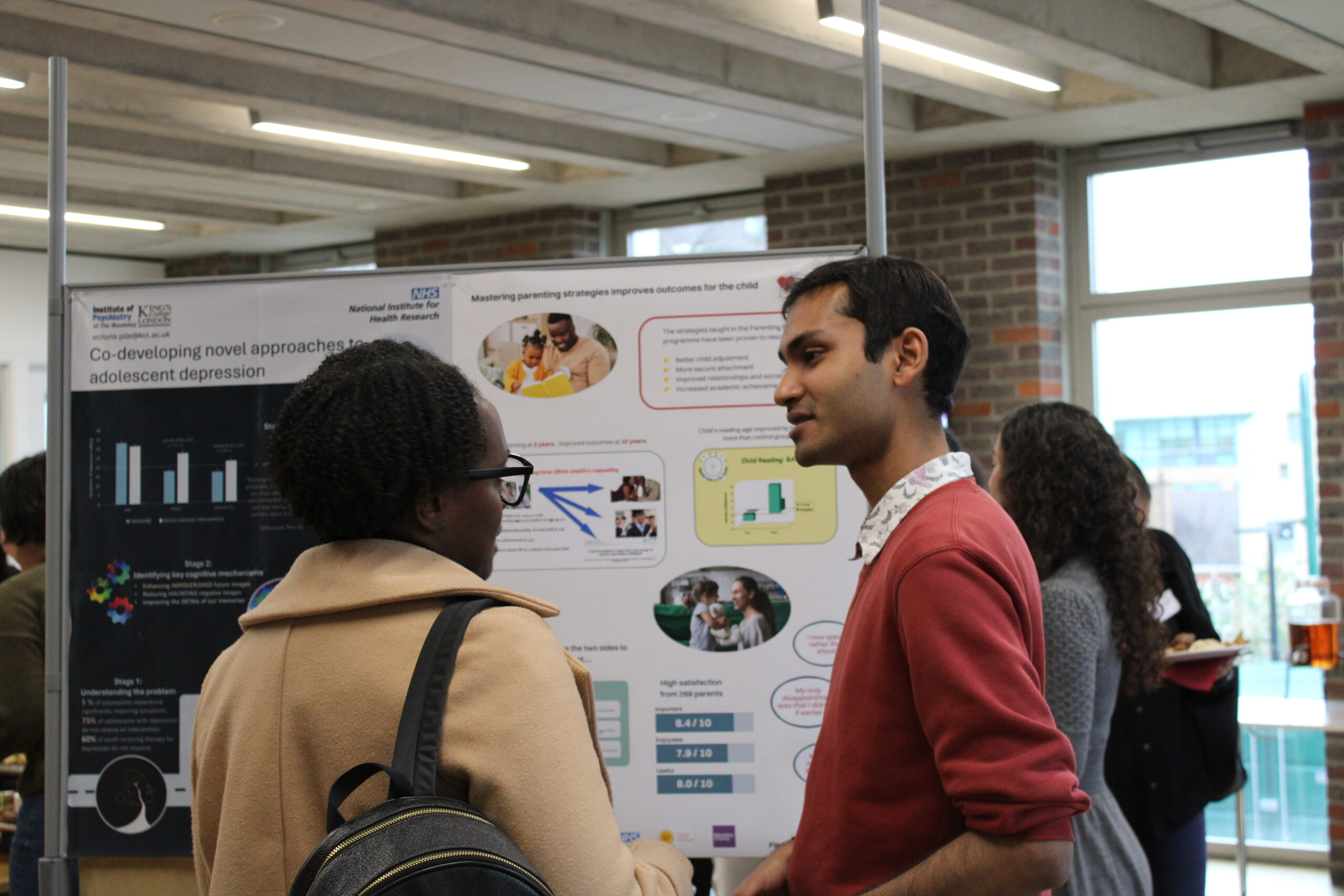
While research on CYP’s mental health and wellbeing is growing, the interventions available often fail to address the specific needs of schools. Many are too costly to implement, do not align with school priorities, or lack a strong evidence base. This leaves a gap between available research and the practical needs of school communities.
To bridge this gap, the School Mental Health Innovation Network (SMHIN) is being established by the Maudsley Education Consultation Service in collaboration with King’s Maudsley Partnership for Children and Young People, and the ESRC Centre for Society and Mental Health. This initiative aims to equip schools with tailored, evidence-based interventions and resources that address the specific mental health and wellbeing concerns in their school communities, in a way that is relevant and accessible.
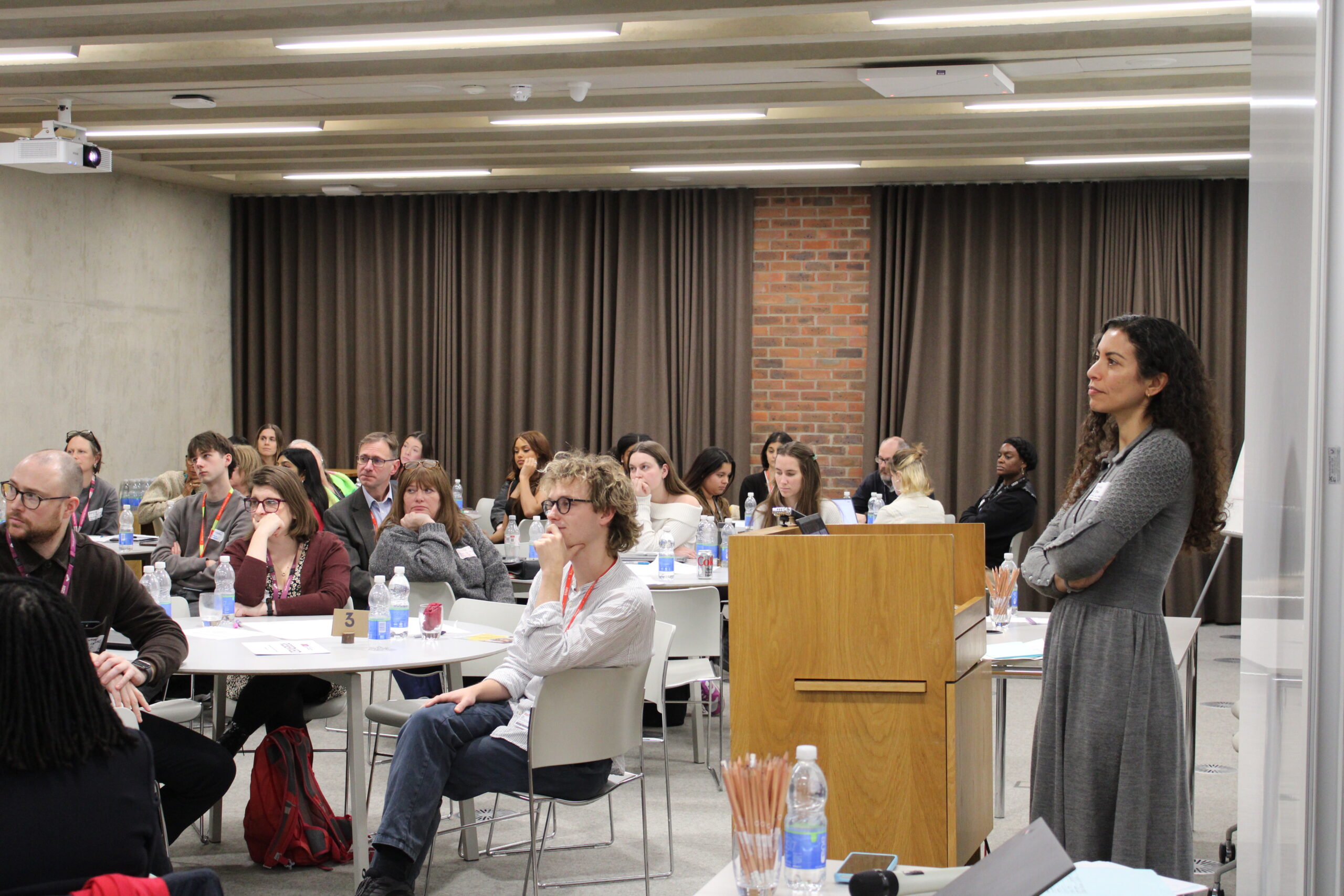
On 11 December 2024, the School Mental Health Innovation Network (SMHIN) launched its first workshop. This event, sponsored by the Maudsley Charity, brought together researchers, clinicians, policymakers, school leaders and young people to discuss ways to improve the mental health and wellbeing (MH&WB) support for young people in South London schools.
The workshop featured presentations from clinicians and researchers about current MH&WB initiatives, as well as from school leads and young people about their concerns and priorities. The day also included poster presentations, panels with key speakers, and roundtable discussions providing participants with an opportunity to delve deeper into key topics, share perspectives, and collaborate on potential solutions. Some of the key themes that emerged from discussions included:
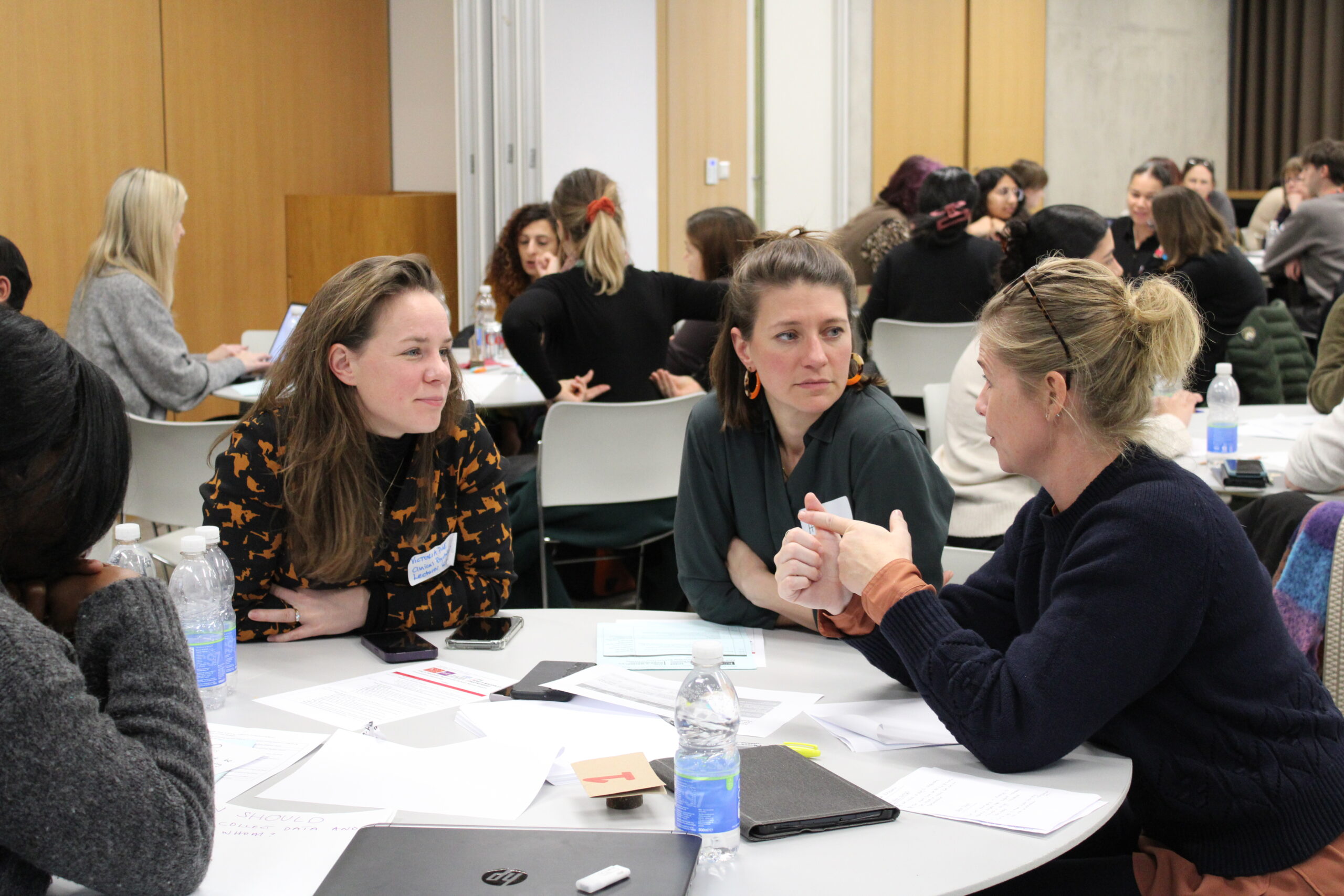
Feedback from the workshop was overwhelmingly positive. Many expressed excitement, hope and gratitude for this initiative, highlighting the need for such a network.
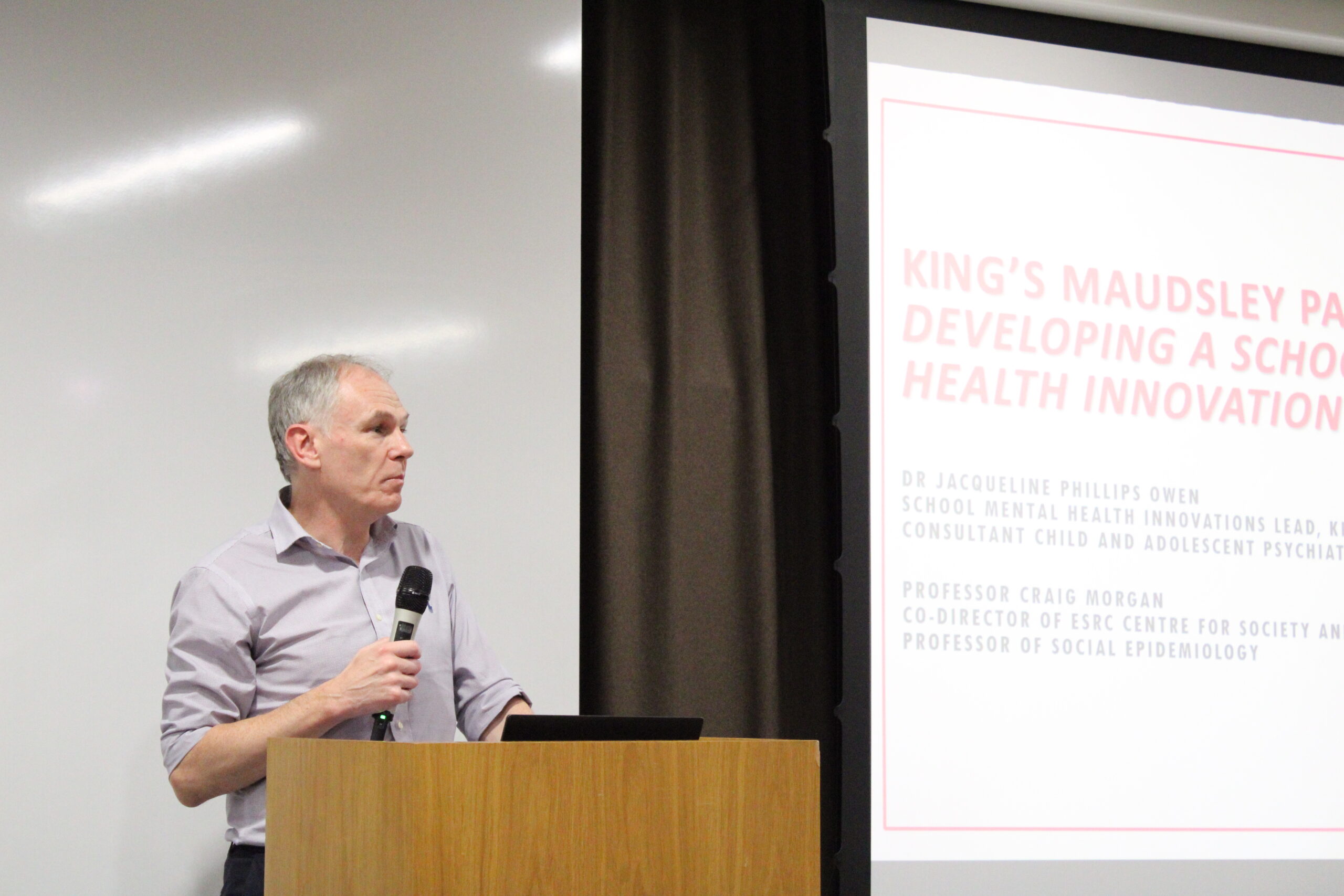
The SMHIN team, led by Dr Jacqueline Phillips Owen and Professor Craig Morgan, is committed to building on the momentum of this inaugural workshop. Future events will go deeper into specific challenges and expand opportunities for schools to collaborate with researchers and clinicians.
In fostering these collaborations, the SMHIN brings to life the missions of the King’s Maudsley Partnership and the ESRC Centre for Society and Mental Health, as it allows leading researchers, specialist clinicians and school communities to work together, combining their knowledge and expertise to improve the mental health and wellbeing support that’s accessible to young people across London.
Get in touch!
If you have any questions and/or would like to join the SMHIN, please email us at mecs@slam.nhs.uk and a member of our team will get in contact with you.
For the latest updates and news, follow us on our social channels.
Recent Comments